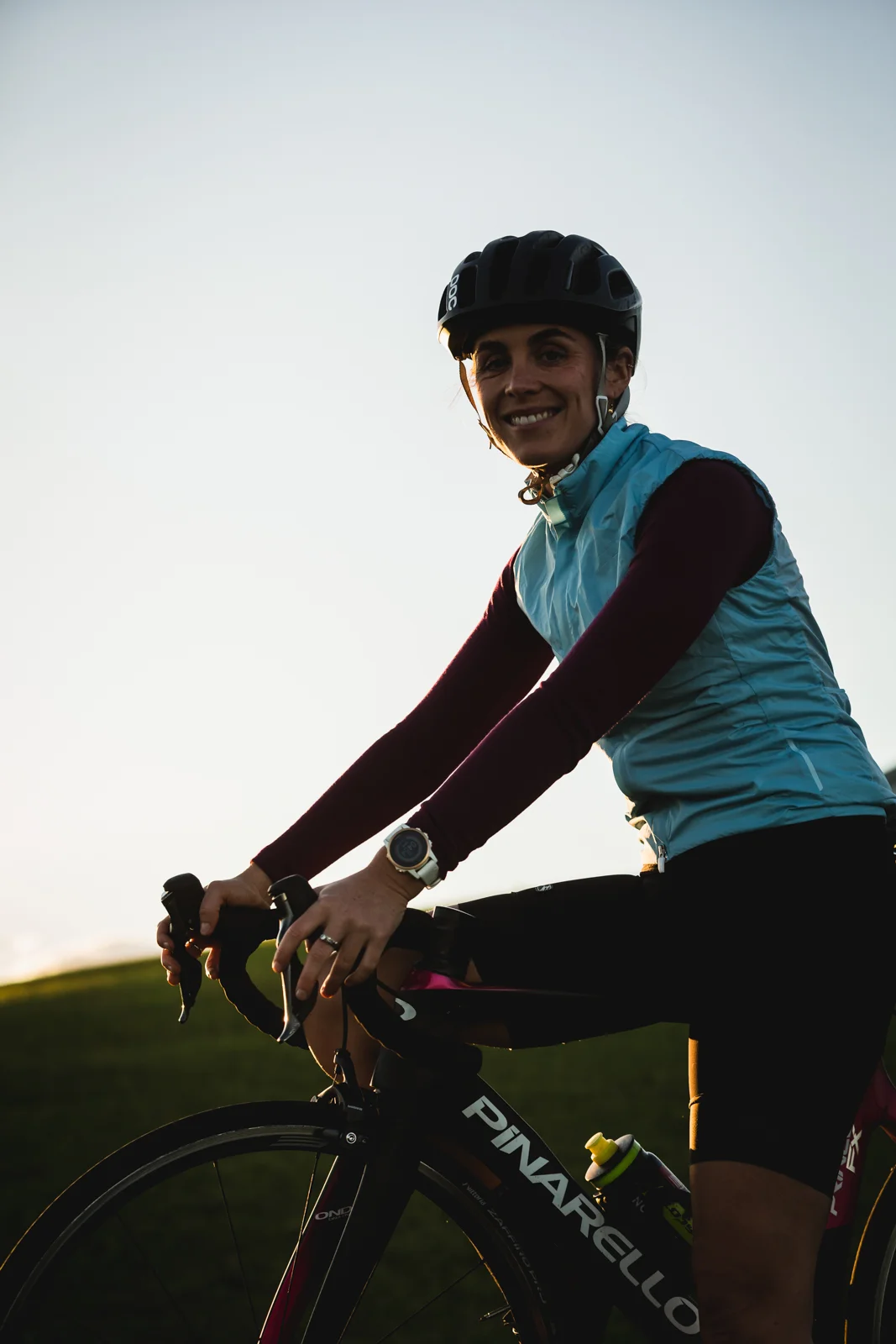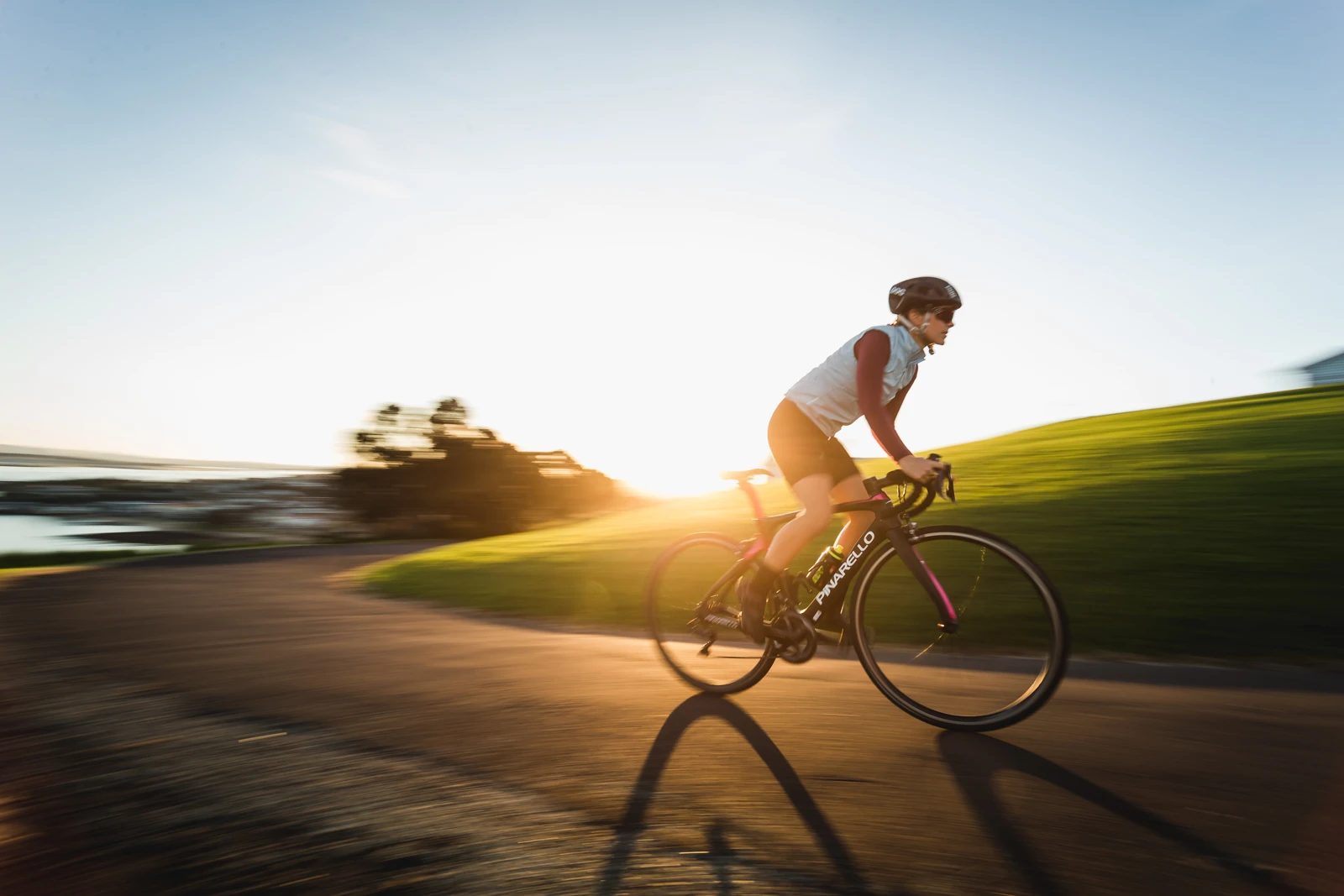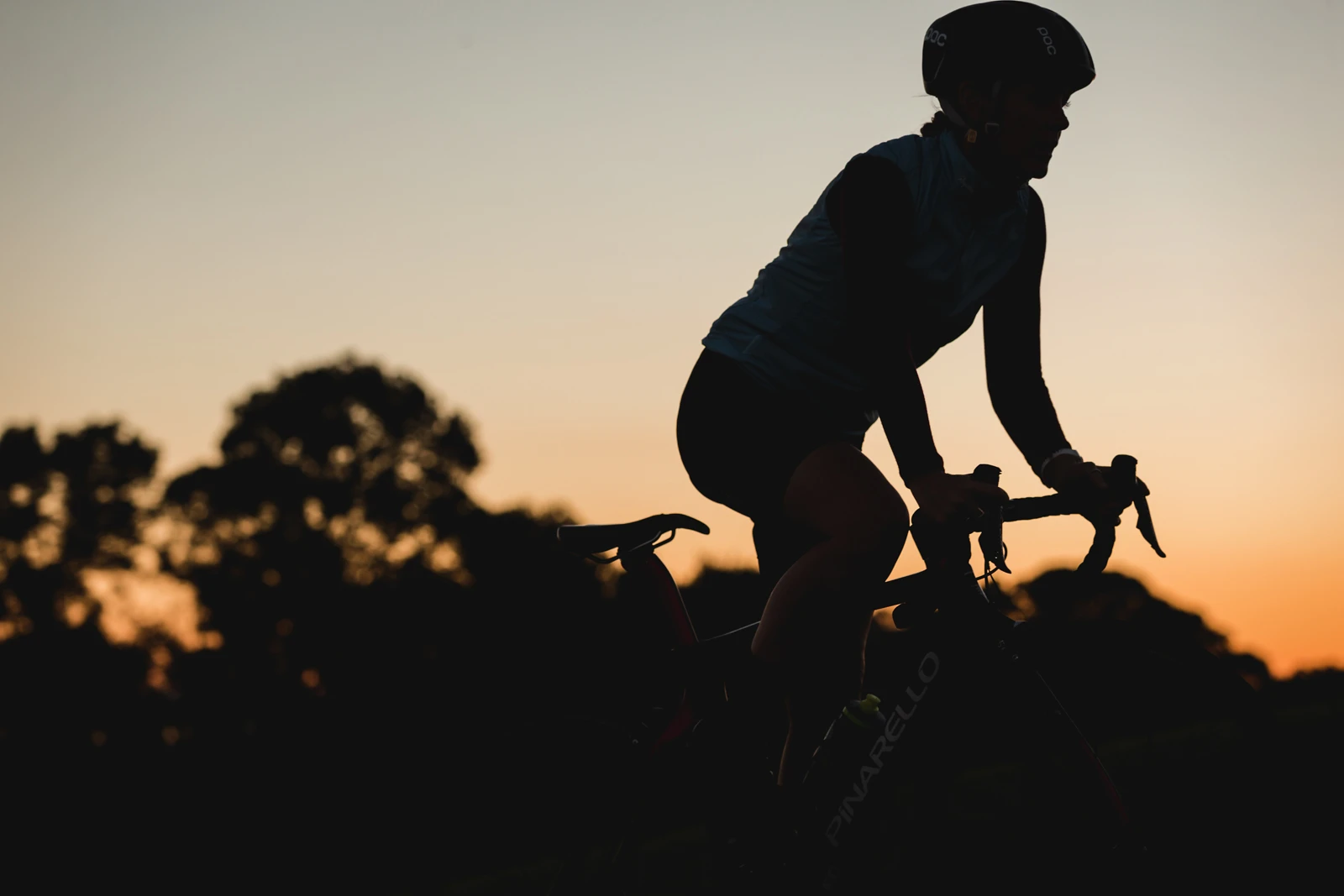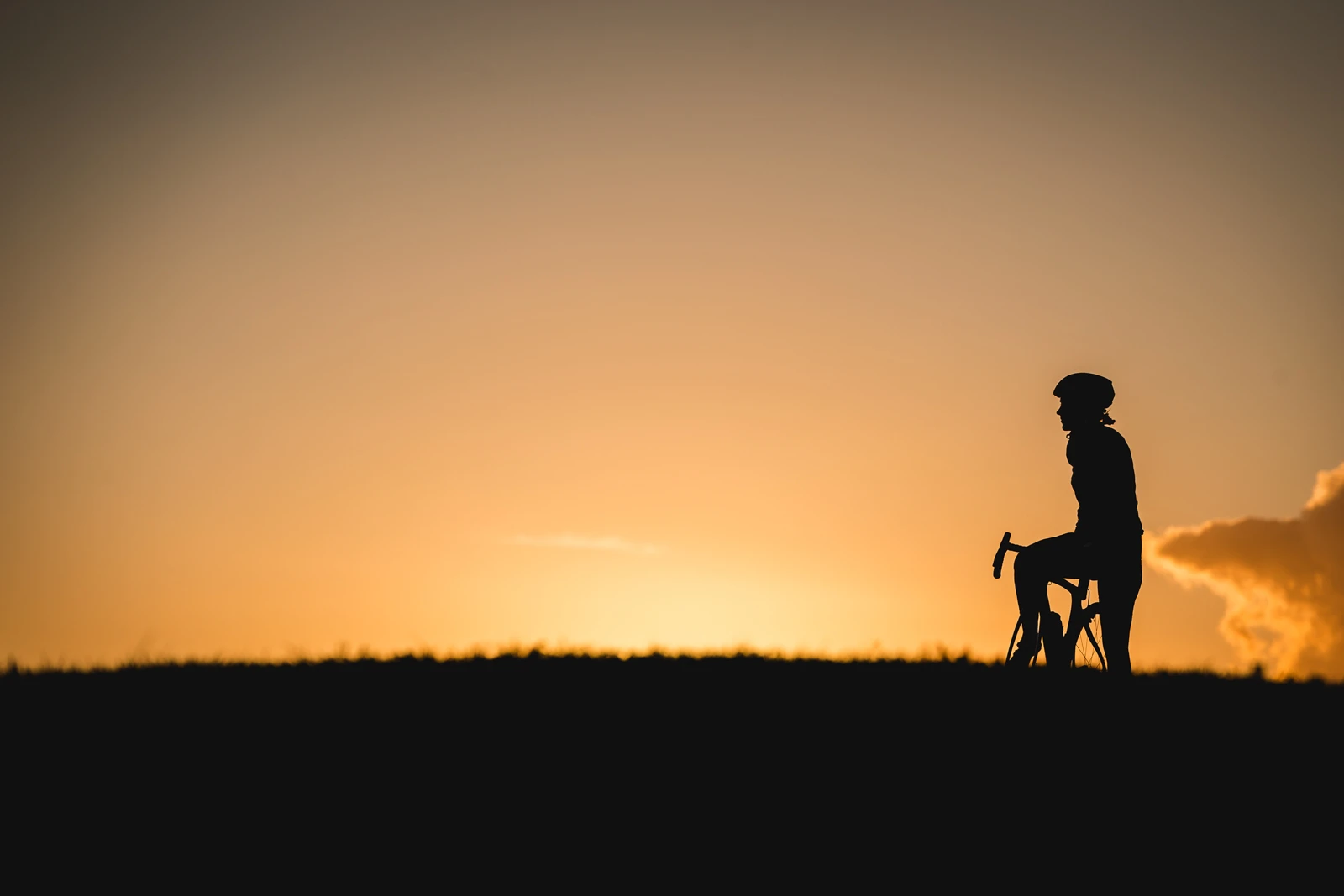Words: Kerrie Morgan
Images: Cam Mackenzie
Sacrifice. Pressure. Commitment. Think of any professional athlete and these three words almost immediately spring to mind. Even for those of us who are self-proclaimed Weekend Warriors, it’s easy to recognise the obvious demands being a professional cyclist brings with it. Flip the coin and it’s soon apparent that these three words also apply when referring to the partner of a professional cyclist – and then some. Throw in support, belief, confidence and independence and you’re starting to understand what it’s like to be Kate Chilcott, the partner of professional cyclist, James Oram.
Before I sat down with Kate Chilcott to ask her about the demands of being the partner of a professional cyclist and all that it entails, I knew she must be a pretty special type of person. Many people I know would feel disgruntled if their partner took off without them for a weekend – let alone for three quarters of the year. Kate, however, is quietly confident, fiercely independent and an all-round pretty chilled out person.
No stranger to the constant pressure and demands of being a professional cyclist, Kate started her own cycling career at the age of 14. After attending Westlake Girls High School on Auckland’s North Shore, Kate went on to represent New Zealand in junior and women’s teams, both here and internationally. Since then, cycling has taken Kate to every corner of the globe, bringing with it the extreme highs and lows of being a professional athlete. But as she points out, although it might sound exotic – travelling from country-to-country, meeting new people and cycling through different vistas every day – the reality can be harsh. Kate recalls a particular low point when, after crashing and injuring her arm, she ended up in a foreign hospital, unsure which country she was in. Unable to communicate with the non-English speaking hospital staff, Kate found herself with her arm in a cast only to be told at a later date that her arm was, in fact, not even broken! After a stint living, training and racing in America, she decided to call it quits.
“I just really wanted to live a normal life while I was still young,” Kate explains, without a hint of regret. “I wanted to finish my degree, get a normal job and be like the rest of my friends.” All of which she was able to achieve once competitive cycling was out of the picture. That all-encompassing word, ‘normal’, gets a lot of airtime during our chat and I start to realise that for someone who is away from home for most of the year, living and training in a foreign country, always thinking about their next race, ‘normal’ must feel like a luxury – after all, they have sacrificed ‘normal’ to live the life of a professional athlete.

It only takes a minute with Kate to realise that she is very sure of herself and her goals; the journey from professional cyclist to product development engineer was a purposeful one. But, every now and again, life likes to throw us a curve ball – especially when it comes to timing. Just as Kate was winding down her cycling career and transitioning into her new life as a full-time engineering student, she and her long-time friend James Oram decided to make a go of their relationship.
“So, I’m still living the cycling life!” laughs Kate. The two met when their cycling careers first started, at high school. Their school teams regularly trained together so Kate and James’ paths crossed then, and they continued training together even after leaving school and moving overseas. Spending summers back in New Zealand, they were both part of a group of cyclists who would regularly ride together and were based on the North Shore. It seemed that the two were living parallel lives and taking the next step in their friendship was a natural progression. However, unlike most couples starting a new relationship, Kate and James spent theirs thousands of miles apart. At the time, James was based in the USA and would be moving to Europe after that. Kate, on the other hand, was finishing her degree here in New Zealand. Determined to make it work, long distance was the only option – and something they’ve had to get used to. Until recently, James has spent every year living overseas for months at a time, while Kate has remained here in New Zealand, living in their flat on the North Shore.
Safe to say, that trusty old word comes out to play again when talking about a relationship like this: Kate and James’ set-up is anything but ‘normal’. They both admit freely that being a professional athlete is selfish and can be lonely for both parties. Both have had to make huge sacrifices – things that other, regular couples would never even consider. Just last year they spent eight months apart in one hit, using Facetime as a medium to communicate everyday on Kate’s long drive to work. Organising to meet up overseas has its own set of drawbacks and unpredictable contracts or last minute training camps have often meant James can’t book flights or RSVP to friends’ weddings until a week, or even days, beforehand. In one instance, Kate arrived in America to visit James, only for them to be told he had to attend a training camp which meant they would have just two days together out of the entire five week holiday. They have their fingers crossed for a trip to Bali later this year, but Kate knows better than to hold her breath.

Even simple things the rest of us Kiwis take for granted, are affected by James’ schedule: “If our friends are going camping somewhere where there’s only gravel roads – we can’t go,” explains Kate. To combat this, the couple recently bought a converted van, something Kate has always wanted to do. In between James’ five to eight week stints away, they’ll be road tripping around New Zealand – bikes on the back of course.
Kate admits the lack of being able to forward plan holidays and events can be annoying at times, but she’s thankful for her own experience as a professional cyclist – after all, without fully knowing what it entails, one might be mistaken for thinking the long overseas trips were just extended holidays, filled with stunning beaches and coffee dates. Kate and James both know that’s not the case. “If you didn’t know what he was doing, it might look like he’s just living the life,” Kate explains. “But I know it’s actually a really hard lifestyle and can be really lonely as well.”
That said, when asked if she’ll be joining James on any of his trips away this year, Kate’s answer is a firm no. She has her own stuff going on. Besides, she doesn’t want to go and just “hang out and do nothing” while James races. In 2019, WAG culture feels like an antiquated concept and if Kate ever did go and join James overseas it would be to live and work on her own career. “Maybe a few months holiday would be nice, but you don’t want ten years to go past and then realise you’ve sacrificed your own life and your career,” she explains. There’s no doubt this lifestyle wouldn’t suit everyone, but Kate and James make it seem natural and almost….easy. Sure, there are sacrifices being made by both parties, but they seem to have struck a balance that to many couples feels elusive.

“Kate is the certainty – and I am the big question mark,” laughs James. “But that’s probably why we work so well. I know I’m going to be going away all the time but that’s not holding Kate back. She has her own goals and her career. One of the best things, is that she’s taught me cycling isn’t everything and you have to have other stuff going on too.”
Having a career is important to Kate – and not just her own: she’s a firm believer professional athletes should have a career plan for when they come out of their sport. Although professional cycling has a later retirement age than most other sports, many athletes come out of it having never studied or done anything other than race. With that in mind, she was a driving force in getting James to study extramurally for a degree in business. “Cycling is so unpredictable,” reasons Kate. “You might not get a contract, you might have a bad accident, anything could happen to put a stop to your cycling and if that’s all you have, then you have to start from scratch.”
So, would anything be different now if Kate had kept cycling professionally? Both Kate and James agree that if anything, it would have been a lot easier on the relationship. The sacrifices they are both making now by spending time apart and not being able to plan ahead, would not seem so massive if they were both in the same boat. What’s more, they likely would have been based together in America and could have supported each other with training and racing.

It’s a life they’ll likely never know, because although they both agree women’s professional cycling has come a long way in the last four years, Kate is adamant she won’t ever return to the sport. Instead, she prefers to mix up her weekly just-for-fun rides with running, touch rugby, skiing and other creative endeavours. Along with family events, friends’ weddings and work parties, these are all things that Kate does independently of James, whose strict training schedule and the risk involved, prevent him from joining in – breaking a leg in a skiing accident would be one sacrifice too many!
As we finished our chat, I couldn’t help but think about how much we could all learn not just from professional sportspeople, but the people who support them. After all, it’s clear that the way Kate supports James goes far beyond watching from the side lines and handing out water bottles. If anything, her role in the relationship takes the same sort of strength, determination and confidence that being a professional cyclist does.
“Because I cycled, I’ve made sacrifices my whole life. I’m fine with sacrificing a few things to be with James,” concludes Kate, drawing the comparison between professional cyclist and supporter. One word springs to mind, but Kate beats me to it, adding: “It just seems normal.”

